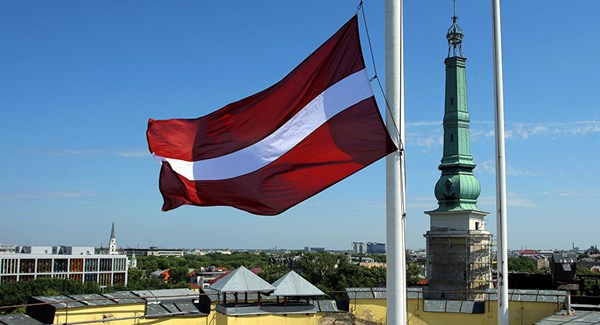Russian money-laundering scandal puts Latvia on verge of financial catastrophe
After becoming one of the primary “laundromats” for laundering shady capital from Russia, the Latvian banking system is now facing the threat of international isolation.
Due the scandal surrounding the country’s second largest bank, ABLV, which was caught transferring billions of dollars from Russia and former Soviet states into offshore accounts, Latvia risks being blacklisted by the FATF, observed the US ambassador to the country, Andris Teikmanis.
This blacklist includes governments that tolerate significant infringements with respect to the legalization of illicit funds. If the country does end up being blacklisted, Latvian residents will face payment problems around the world, Teikmanis warned.
“The fact that your credit card is not accepted in Germany will be the least of your worries,” the ambassador said in an interview on Latvian TV.
The problems will be faced not just by physical entities, but by the entire economy. “Our exports will decline, because the transactions to pay for shipments will become difficult. This will affect our economy extremely severely,” Teikmanis said.
Moneyval, the Council of Europe’s committee of experts on anti-money laundering measures, has given Latvia half a year to bring an end to the shady operations and “set the financial sector strait”.
In the third quarter, the country will be visited by a delegation from Moneyval, which will assess the progress in conjunction with the Financial Action Task Force (FATF). If it is found to be inadequate, Latvia will officially be given the status of “gray zone” at a plenary FATF session in February 2020.
Unfortunately, it is unlikely that Latvia will be able to meet all the demands in time, laments Ilze Znotina, head of the Latvian Control Service for Combating the Legalization of Illicit Proceeds.
“We are far from being able to say yes. Unfortunately, at present it’s fifty-fifty,” she said: the situation is made more complicated by political uncertainty, and foreign partners are concerned by delays in the formation of the new government and its lack of clear priorities.
The scandal surrounding ABLV emerged in February, when the US Financial Crimes Enforcement Network announced that the bank had been involved in operations to launder money from Russia, Ukraine and Azerbaijan.
The bank was accused of “transferring through fictitious companies billions of dollars acquired through corruption and the seizure of assets” and of money-laundering becoming the basis of its business.
For more than two decades, Latvian banks have been the bridgehead for capital movement from former Soviet states into the EU, but the largest growth in the number of Russian clients took place at the start of the 2010s, explains the director of Infinity Group’s international tax planning department.
The first wave was when Latvia started issuing residence permits in connection with its investment program, and the second was after the banking crisis in Cyprus in 2013.
As a result, by the start of 2016, a country with a population six times smaller than Moscow’s and a 0.03% share of the world’s GDP conducted 1% of all dollar transactions in the world.
